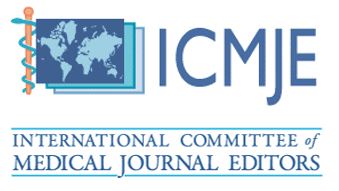Evaluating Efficiency of an Integrated Drug Dispensing System in Sabah West Coast Division Government Healthcare Facilities
DOI:
https://doi.org/10.51200/bjms.vi1.5048Keywords:
IDDS: Integrated Drug Dispensing System, SPUB-R1: Sistem Pendispensan Ubat-ubatan Bersepadu-R1 (a printed document), MOH: Ministry of HealthAbstract
This study assesses the efficiency of the Integrated Drug Dispensing System (IDDS) or Sistem Pendispensan Ubat Bersepadu (SPUB) in healthcare facilities operated by the Malaysian Ministry of Health on the West Coast of Sabah. The IDDS is a dispensing system that allows patients with recurring prescriptions to access their medication supply at any healthcare facility listed under the IDDS Directory. The primary objectives of the study are to estimate the prevalence of delays in drug dispensing through the IDDS, identify the reasons behind these delays, and explore the factors that hinder the efficiency of the IDDS. Conducted as a cross-sectional prevalence study, the research reviews 300 IDDS prescriptions, excluding non-IDDS prescriptions, managed by eight Ministry of Health facilities on the West Coast of Sabah over one month. Data collection involves using a three-section data form distributed to gather necessary information. By applying a prevalence formula, the study reveals that the prevalence of delays in drug dispensing through the IDDS is 5%. This indicates that 5 out of 100 sampled prescriptions experience delays in drug dispensing. Interestingly, most delays (56.16%) are caused by patient-related issues, followed by 19.18% attributed to problems with the SPUB-R1 form, 13.69% due to stock-related issues, and 1.37% linked to logistic challenges. The study also identifies factors hindering the efficiency of the IDDS, including discrepancies in the review dates stated on prescriptions, overlapping medication documentation across multiple prescriptions, patients not adhering to their medication collection schedules, delays in receiving the SPUB-R1 form from referring facilities, and instances where the required medication is unavailable at the referring facility. The implications of this study are significant, potentially affecting patient care, disrupting treatments, and leading to dissatisfaction. Therefore, strategies such as enhanced communication protocols and an improved tracking mechanism should be implemented to optimize the IDDS system.
Downloads
Published
How to Cite
Issue
Section
License
All articles are published under the Creative Commons Attribution-NonCommercial (CC BY-NC 4.0) license, enabling users to read, download, copy, distribute, and adapt the material for non-commercial purposes, provided proper credit is given to the original authors and the source. This model supports transparency, accessibility, and the global exchange of medical knowledge.








1.png)





